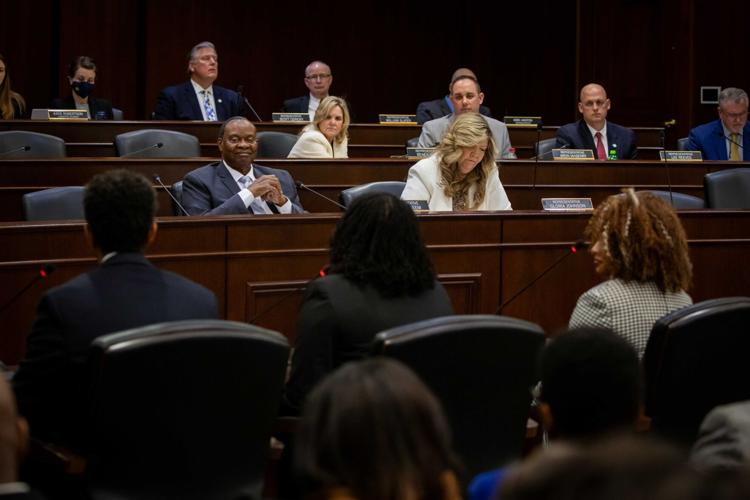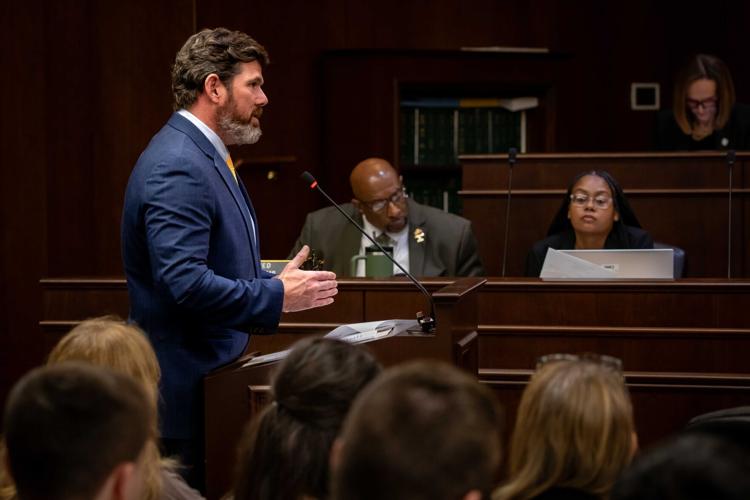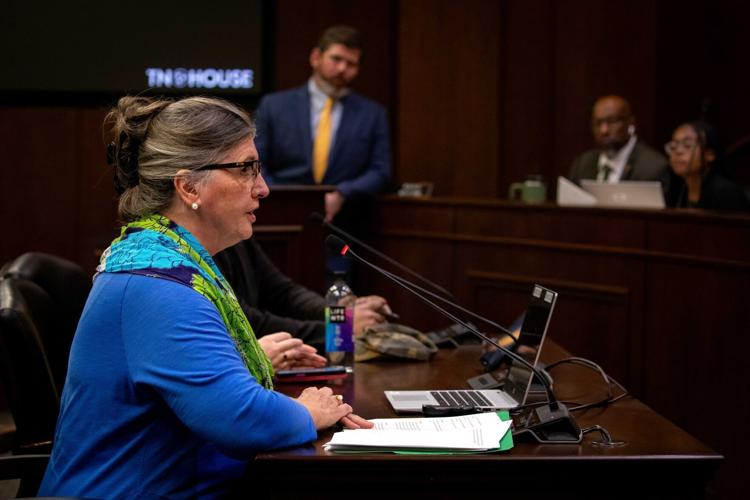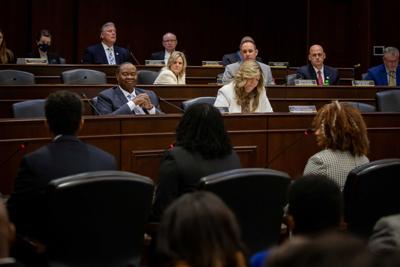It was a busy week on the hill. More than 200 people gathered at the Capitol Wednesday as a part of the Tennessee Immigrant & Refugee Rights Coalition’s Day on the Hill protest in response to state and federal legislation targeting immigrants.
From kindergarten to college, immigrant students in Tennessee worry about impending crackdown
One of those state bills is House Bill 793/Senate Bill 836, which would prohibit undocumented students from attending public schools. The legislation narrowly passed 5-4 in the Senate Education Committee on Wednesday and is set to be heard by the House K-12 Subcommittee on March 11. Opponents of the bill argue it could create a challenge to Plyler v. Doe, a 1982 U.S. Supreme Court ruling that entitled all children to public education regardless of immigration status.
“Certain politicians in the Tennessee General Assembly have no interest in protecting the freedoms, families and futures of Tennesseans,” says Judith Clerjeune, advocacy director for TIRRC, in a press release. “Instead, they shame and blame new immigrants, pointing the finger to divide and distract us.”

Rep. Bob Freeman speaks about his Right to Die bill in the House Population Health Committee, March 4, 2025
Health Care and Right to Die
Rep. Bob Freeman (D-Nashville) advocated for his bill earlier this week that would allow adults suffering from terminal disease to end their lives with medication. His efforts ultimately failed. Freeman, who is also the owner of Nashville Post and Nashville Scene parent company FW Publishing, sought the legislation following his father’s death by suicide in November.
One bipartisan bill from Rep. Charlie Baum (R-Murfreesboro) and Sen. Jeff Yarbro (D-Nashville), which would allow for some people who aren’t covered by TennCare to have temporary coverage, met its demise this week. But another TennCare-related bill from Sen. London Lamar (D-Memphis) and Rep. Torrey Harris (D-Memphis) is still alive. Under SB 401, children who are enrolled in TennCare or CoverKids would have their health coverage automatically renewed under most circumstances. In 2024, Lamar also sought to institute automatic TennCare enrollment for children, and that effort failed.
Tennessee is now one of 10 states that have not expanded Medicare coverage. Up to 500,000 lost TennCare coverage in the past several years due to post-pandemic redetermination, with some removed from the roll illegally even before the COVID-19 pandemic.
A bill from Sen. Shane Reeves (R-Murfreesboro) passed the Senate this week. SB 569 includes a provision that would allow pharmacies to charge an administrative fee to insurance patients obtaining hormonal birth control, according to the fiscal note. It awaits action in the House.

D. Joy Riley, executive director for the Tennessee Center for Bioethics and Culture, speaks in opposition the Right to Die bill, March 4, 2025
SB 955 passed the Senate this week. This bill from Sen. Ferrell Haile (R-Gallatin) is backed by Alliance Defending Freedom — an organization known for policies targeting abortion and LGBTQ rights — and would allow health care workers to refuse care to individuals when it violates their “conscience.” This could cause conflict between state law and standards adopted by professional medical organizations.
Development
Some Nashvillians receive an endless barrage of calls and texts from developers offering to buy their homes. A bill called the Tennessee Homebuyer Harassment Protection Act from Sen. Charlane Oliver (D-Nashville) and Rep. Caleb Hemmer (D-Nashville), which is headed to the Senate floor, would limit the number of times real estate developers or other businesses can contact homeowners with unsolicited offers. It is awaiting action in the House.
A bill to allow condominium developers to use deposit funds for equity in a project and for construction passed the Senate on Monday and awaits its day on the House floor. Three Senate Democrats voted against the bill on Monday, while Sen. Jeff Yarbro (D-Nashville) voted in favor and Sens. Raumesh Akbari (D-Memphis) and London Lamar (D-Memphis) did not cast votes. Bill sponsor and Senate Major Leader Jack Johnson (R-Franklin) said Tennessee would be the 38th state to pass this kind of legislation.
House Democrats in the Commerce Committee on Wednesday raised concerns for consumer protections in the bill. The bill would allow a developer to enter an agreement with a buyer about such a deposit for up to 10 percent of the purchase price. The bill does allow for money above that amount to be placed in a separate escrow account for construction funds if the details are included in the contract between both parties. That agreement would also require the developer to provide a financial guarantee of the buyer’s funds through either an irrevocable letter of credit or a surety bond.
“I think that frankly having a surety on the line for it is far better and far secures that deposit much more so than [buyers] having to … be able to find an individual to be able to cut you a check,” said Rep. Kevin Vaughan (R-Collierville), the Commerce Committee chair. “When you start dealing with institutions as opposed to individuals, you as a consumer have more certainty and more protection.”
Four House Democrats voted against the bill in the House Commerce Committee, but Rep. Caleb Hemmer (D-Nashville) voted in favor. It awaits a floor scheduling date from the Calendar and Rules Committee.
Education
A bill that would restrict the use of cellphones in the classroom passed both the House and Senate this week and is headed to the governor’s desk for a final signature. The legislation would require local boards of education and public charter schools to adopt policies prohibiting students from using wireless communication devices during instructional time and allows teachers to withhold devices if it is within their district’s policy.
Alexander-sponsored legislation now moves to Senate for consideration
Local school boards can make exceptions, including if a teacher allows students to use the devices for educational purposes, during emergencies, to manage a student’s health or if the device is included in their individualized education program or active 504 plan. It gives local school boards a choice in how they want to implement the policy and methods of disciplinary action for students who violate the policy, and requires the board to establish procedures for the notification of parents and guardians during emergencies.
The Senate also unanimously passed a piece of legislation that adds instruction on the state’s safe-haven law to the family life curriculum for high school students. Tennessee’s safe-haven law allows mothers of newborns to surrender babies at designated facilities without being prosecuted. The bill is set to be heard before the House Education Committee on March 11.










